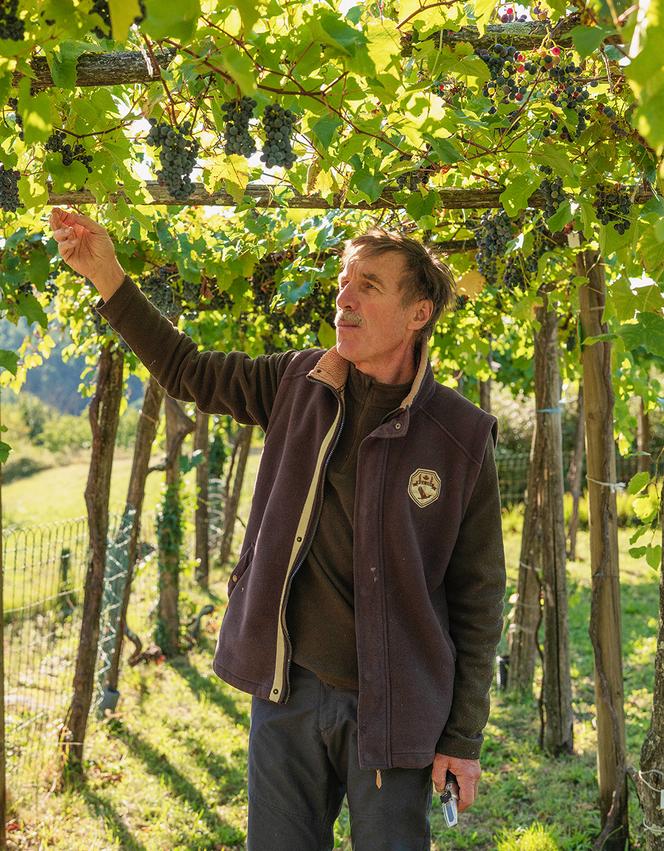


On a late summer morning, a fresh breeze was blowing across Gilbert Bischeri's land. The previous day, September 13, it had even snowed a little higher up, in the Cévennes mountains. In the small village of Aujac, he inspected his vines without worrying too much about the cold snap. "The grapes are doing very well, we'll harvest them in October, not before," he said, tasting the berries of a vine dating back to 1870. For 30 years, the septuagenarian has been cultivating some 800 square meters he inherited from his family here, where he has created a test plot, "a vine conservatory," as he called it. He cultivates grape varieties that all have the same particularity: It is forbidden to sell their nectar under the appellation "wine."
But like other winegrowers in the area, Bischeri is resisting. Forbidden grape varieties have even become his hobbyhorse. In this part of the Cévennes, which hugs the foothills of Mont-Lozère, Gard and Ardèche, and where vines flourish on hillsides, on plots that are often cramped and inaccessible to motorized machinery, rebel winegrowers are fighting to rehabilitate these hybrid varieties. Derived from crossbreeding European and American vines, they have been banned in France since 1934.
The ban concerns six grape varieties – Clinton, Isabelle, Noah, Othello, Herbemont, Jacquez – which were imported from the US in the 19th century. "Faced with wine overproduction, the government banned them. They were uprooted all over France on the pretext that they drove people mad. Everywhere, except in the Cévennes," explained Danny Peregrine, director of the Cévennes IGP (protected geographical indication). "To the gendarmes who came to check their vines, the people of Cévennes would reply: 'Tear them up if you want, but we won't do it,' because here, we don't tear up what we've planted."
Despite the ban, the crop has been passed down from generation to generation in this poor region where men used to work in the mines. "These are vines that the miners grew on trellises for family consumption,” explained Denis Verdier, president of Vins des Cévennes IGP. "These robust, easy-to-work plants lent themselves well to cultivation in rural, low mountain areas."
Today, organizations such as Fruits Oubliés Réseaux (Forgotten Fruits Networks), headed by Bischeri, and Mémoire de la Vigne (Memory of the Vine), created by Hervé Garnier in Ardèche, are working to raise awareness of these grape varieties. But their products must always be sold discreetly. Bischeri, who has made 47 vintages and produces 600 bottles a year, explained: "These are vintages that we can't sell, so we give them away in exchange for membership in the organization, or we let people taste them." These organizations, which are behind support for the forbidden grape varieties, have aroused the interest of Cévennes IGP officials. "Initially, we were told: 'Don't waste time with this, it's no good,'" said Peregrine, "but the tastings convinced us otherwise."
You have 43.95% of this article left to read. The rest is for subscribers only.
